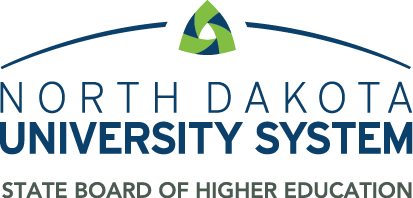
02 Apr Board discusses governance
The State Board of Higher Education discussed proposed changes to its governance structure at its most recent meeting.
Several proposals to governance changes had been made recently, including a recommendation by the Governor’s Task Force for Higher Education Governance calling for two boards – one for research universities and one for the other nine campuses – and a proposal from the legislature in the form of Senate Concurrent Resolution 4016, which would increase the size of the Board to 15 members and change the term length to six years. The latter proposal, if passed by the N.D. Legislature, would appear before voters next year.
Starting last year, the Board had visited the topic internally through its Governance Committee. Board member Kathleen Neset brought forward a report from that committee, which included discussion on a Tier Committee structure for the Board. That proposal would create committees under the Board that focused on each of the three tiers of the university system: community college, four-year regional and four-year research. Board Vice Chair Nick Hacker asked if the governance structure would produce a recommendation in the near future. Neset responded that it could happen by the annual retreat.
Student member Ashley Zarling asked the Board what would happen to the student voice on the Board if it were to be structurally changed, noting several students had approached her with similar questions.
“My biggest concern if the structure changes is in losing that key student voice,” she said, noting that an expansion of the Board to 15 proposed members would at this time still only one student, thereby ultimately “diluting the student voice.” Chancellor Mark Hagerott noted that Zarling brought up a good observation, and that the North Dakota Student Association had proposed an amendment to SCR 4016 that would include additional student members.
Faculty Advisor Birgit Pruess added that faculty had a similar concern, and said she hoped that if an expansion happened that additional faculty members would be included. Board Chairman Don Morton then spoke, noting that he wasn’t speaking as the Chairman but a member of the Governor’s Task Force. Morton reiterated the task force’s recommendation, noting that two boards could include more students and faculty. He said he felt it would allow for more business to get done overall. Discussion commenced on details of the different plans, with Board members seeming to agree that no matter which proposal was ultimately selected by the voters, the tiered committee structure could be beneficial.
After a brief recess, the Board’s next business a briefing from Bismarck State College Pres. Larry Skogen, who spoke to the Board on the partnership between his college and Saudi Arabia.
Skogen’s presentation noted that the partnership had gone forward as Saudi Arabia was looking to the future for energy needs beyond oil and gas, as well as finding ways to employ more of their workforce, which was growing younger. Skogen noted that the nation had created a National Power Academy to address these needs, with stakeholders including Siemens and General Electric. Officials from BSC responded to a request for proposal regarding the delivery of programmatic content under the NPA, and ended up winning the contract after it had been down to six American colleges.
Board member Jill Louters brought forward recommendations for new programs and program terminations from the Academic and Student Affairs Committee. Recommendations were for new programs at Dickinson State University including an Associate in Science, Bachelor of Science in Criminal Justice, and Undergraduate Certificate in Allied Health; as well as Undergraduate Certificates in Online Digital Teaching and Biotechnology from Mayville State University. A recommendation for program termination in the Undergraduate Certificate in Medical Coding at Williston State College was also discussed. All recommendations were approved.
Hacker brought forward recommendations from the Budget and Finance Committee, which included discussion on the University of North Dakota Law School Tuition Rate, and a UND request for an exemption to NDCC Section 15-10.3-03. The latter would increase mandatory fees in excess of one percent of Fiscal Year 2019 undergraduate tuition rates
In audit business, Neset also noted that the employee survey report on North Dakota State College of Science had been reviewed recently, with a proposal to extend the review process for employees periodically throughout the university system’s other 10 campuses. Neset added that digital privacy was also a pressing topic, which governance and audit committees had touched on.
The Board held the first readings of Policies 100.1 (Constitutional and Statutory Authority), 100.7 (Institution Mission Statements), 310.1 (Board President and Member Responsibilities), 310.2 (Board Officers; Elections), 308.2 (Reprisal or Retaliation for Employee Reports Prohibited), 308.1 (Officer and Employee Code of Conduct), 611.10 (Employee Responsibility and Activities Theft, Fraud, Abuse and Waste), 302.9 (Faculty and Staff Advisors), 304.1 (Chancellor/Commissioner of Higher Education Authority and Responsibilities; Contract Term), and 603.1 (Harassment and Discrimination). All were approved.
In other business, the Board heard recommendation for an appointment SBARE; heard respective reports from Amy Whitney, Ph.D. and North Dakota State University Pres. Dean Bresciani on the UND Center for Innovation and NDSU’s College of Business Entrepreneurship program; approved recommendations for honorary degrees for Harold Hamm, Heidi Heitkamp and Clay Lacey; was given a legislative update; and heard reports from North Dakota Student Association, Council of College Faculty and North Dakota State Staff Senate.
The next Board meeting is scheduled for April 29.


